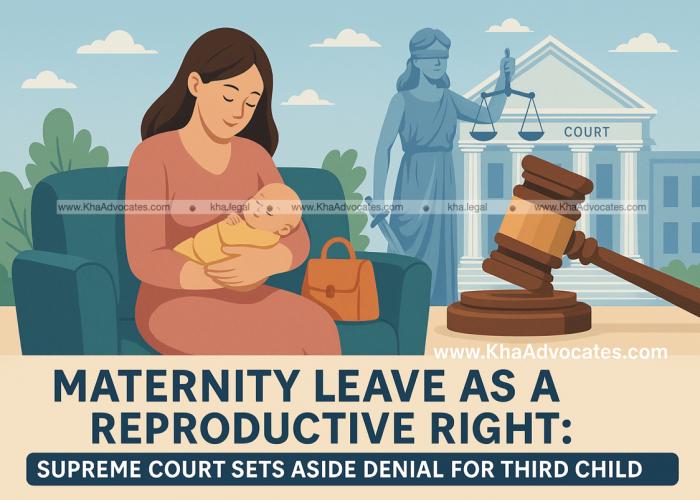
Published on: May 24, 2025
In a landmark decision, the Supreme Court of India has ruled that maternity leave is an integral component of a woman’s reproductive rights. This judgment came as the Court set aside a Madras High Court order that denied maternity leave to a government school teacher for the birth of her third child, citing the state’s two-child policy.
The petitioner, a government school teacher in Tamil Nadu, had two children from her first marriage, both of whom are in the custody of their father. After remarrying in 2018, she gave birth to her third child—the first child from her second marriage and the first since joining government service. When she applied for maternity leave, the state government rejected her request, citing a policy that restricts maternity benefits to women with fewer than two surviving children.
A single judge of the Madras High Court initially ruled in her favor, stating that Section 5 of the Maternity Benefit Act, 1961, does not limit the number of deliveries for which maternity benefits can be claimed. However, this decision was overturned by a Division Bench of the High Court, leading the petitioner to approach the Supreme Court.
A bench comprising Justice Abhay S. Oka and Justice Ujjal Bhuyan held that maternity benefits are part of reproductive rights and that maternity leave is integral to those benefits. The Court emphasized that reproductive rights are recognized under various international human rights laws, encompassing the rights to health, privacy, equality, non-discrimination, and dignity.
The Court observed that the state’s objective of population control through a two-child policy is laudable but should not infringe upon a woman’s fundamental rights. It noted that the petitioner had not availed maternity leave for her first two children, as they were born before she joined government service, and that the third child was her first during her tenure as a government employee.
This ruling underscores the importance of viewing maternity leave not merely as a statutory benefit tied to employment conditions but as a fundamental right linked to a woman’s reproductive autonomy. It sets a precedent that policies aimed at population control should be harmonized with the rights of women to ensure they do not face discrimination or denial of benefits due to personal circumstances such as remarriage or custody arrangements.
The Supreme Court’s decision reinforces the principle that maternity leave is a constitutional guarantee and a vital aspect of reproductive rights. It calls upon state policies to align with this understanding, ensuring that women’s rights are upheld irrespective of the number of children they have or their marital history.
References:

